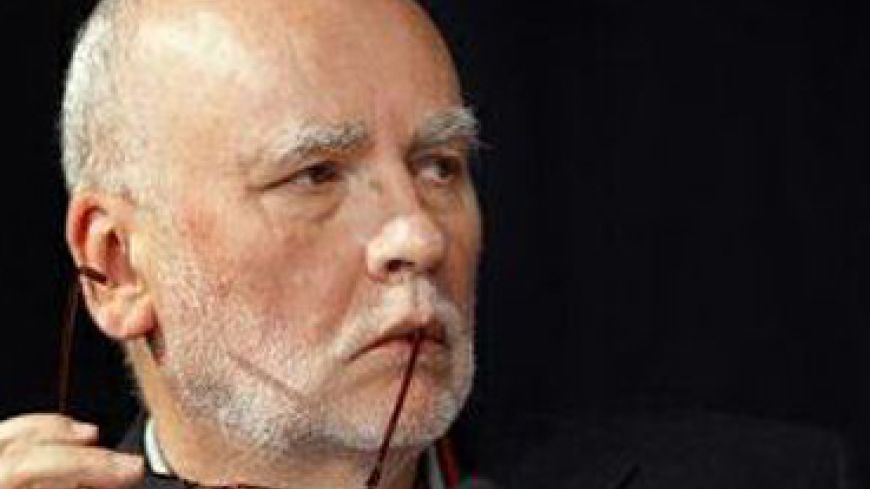
If he were still among us, Czeslaw Milosz would have celebrated his hundredth birthday this year. Nevertheless, this year’s Edinburgh International Book Festival celebrates his life and work with two events, and in this one three poets, two Polish, one Scottish considered his remarkable poetic achievement.
Milosz is perhaps better known in these islands for ‘The Captive Mind’, a study of the intellectual responses to Stalinist communism post World War Two. As a devastating critique of the effects of a totalitarian regime on the creative consciousness, it has few equals (or indeed parallels). Its impact, however, has tended to obscure Milosz’s poetry, and John Burnside, Michal Pawel Markowski, and Adam Zagajewski attempted to restore the balance with their chosen readings from and reflections on Milosz’s poetic output.
Fiona Samson, editor of the Poetry Review chaired the event but wisely allowed the poets to speak for the poet. Milosz was a writer with a considerable intellect and understanding of history, particularly of his native land, sometimes justly referred to as ‘God’s Playground’ and certainly a land contested by external powers throughout its troubled past. This is reflected in his poems, which construct dilemma that are not susceptible to resolution. Perhaps this is why he is less well known than he deserves to be; a satisfactory, far less a happy ending is unlikely to be found in Milosz.
Yet this endless questing which lies at the heart of much of his work is a sincere assessment of the Europe in which Milosz lived and worked. As Burnside observed, ‘British poetry cops out of the big picture, abandoning the hard questions in the hope of ‘honey, still, for tea’. Milosz, of course, had his own riposte to the parochial, even when it bigged itself as gritty and bleak – Markowski treated us to a poetic squib directed at Phillip Larkin that surely found its mark in Larkin’s lifetime.
There was insufficient time to consider Milosz’s other work, which includes two novels and numerous essays, as well as translations of polish and other poets – Milosz himself first came to notice outside his own country as a translator of the poet Zbigniew Herbert – however, the mini-CD of Stephen Fry’s readings of a number of Milosz’s poems and pamphlet of Polish poems presented on the London Underground hopefully gave the departing audience encouragement to investigate both Milosz’s own poems and those of contemporary Polish writers further.
Event: 18 August

